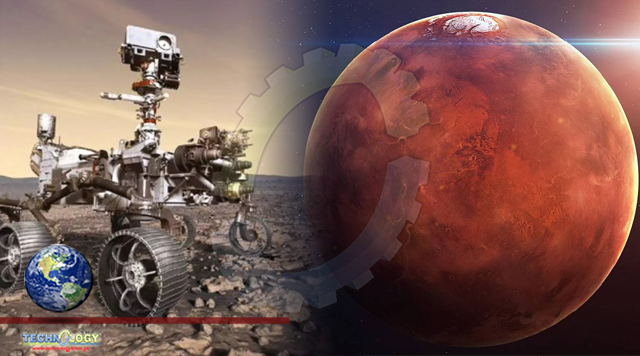For the scientists on Earth, the good and bad thing about planet Mars is that it has water on it. A lot of salty water gives a positive hope of life on the red planet but remains non-drinkable at the same time.

The Red planet is super cold and the water which is not frozen yet has a high extent of salt from the Martian soil, which decreases its freezing temperature.
Humans cannot drink salty water, and the usual method using electricity (electrolysis) to break it down into oxygen (to breathe) and hydrogen (for fuel) requires removing the salt, which could be a costly endeavor on the planet with harsh conditions.
Engineers at the McKelvey School of Engineering at Washington University in St. Louis have discovered a technology with which the salt in Martian water can be removed at a cheaper price. The findings from the research have been published in the Proceedings of the National Academy of Sciences (PNAS).
The research team, led by Vijay Ramani, the Roma B. and Raymond H. Wittcoff Distinguished University Professor in the Department of Energy, Environmental & Chemical Engineering, didn’t simply validate its brine electrolysis system under typical terrestrial conditions; the system was examined in a simulated Martian atmosphere at -33 ⁰F (-36 ⁰C).
“Our Martian brine electrolyzer radically changes the logistical calculus of missions to Mars and beyond,” said Ramani. “This technology is equally useful on Earth where it opens up the oceans as a viable oxygen and fuel source.”
Since 2008, when NASA’s Pheonix Mars Lander first tested water vapours from the dug up ice on Martian planet, the European Space Agency’s Mars Express has discovered several underground ponds of water that remain in a liquid state thanks to the presence of magnesium perchlorate — salt.
Ramani’s team has created a technology which can cheaply separate salt from water and thus oxygen and hydrogen can be taken in use on the planet.
“Our novel brine electrolyzer incorporates a lead ruthenate pyrochlore anode developed by our team in conjunction with a platinum on carbon cathode,” Ramani said. “These carefully designed components coupled with the optimal use of traditional electrochemical engineering principles has yielded this high performance.”
“Paradoxically, the dissolved perchlorate in the water, so-called impurities, actually help in an environment like that of Mars,” said Shrihari Sankarasubramanian, a research scientist in Ramani’s group and joint first author of the paper.
“They prevent the water from freezing,” he said, “and also improve the performance of the electrolyzer system by lowering the electrical resistance.”
The same technology can be used on Earth to extract oxygen from sea water.
Originally published at News heads